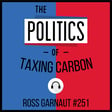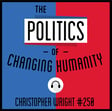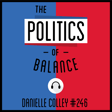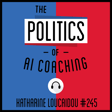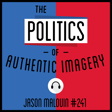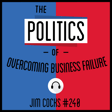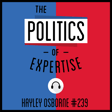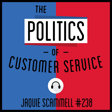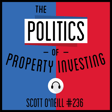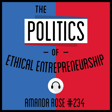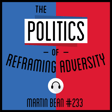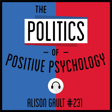
237: The Politics of Estate Planning - Bob Clements
Estate planning is at times a vexing issue – it seems like plenty of films and TV shows have shown the heated family dynamics of legacy and also money is often not exactly fun to navigate! Does it need to be done differently to become less of a taboo topic or can we even accept that inheritance is a gift, not a birthright? I do wonder. My guest has two decades of experience in the financial services industry and knows the world of estate planning well. Bob Clements’ focus lies in delivering sophisticated wealth management solutions, along with tailored financial, business succession, and trust and estate planning services.
Working seamlessly with families, individuals, and businesses, Bob collaborates with existing trusted advisors and family members. This collaborative effort seeks to comprehend clients' current financial plans, providing guidance intended to sustain and maximize long-term wealth. Bob's journey began as an options trader on the Philadelphia Stock Exchange before venturing into various distinguished firms within the Philadelphia area's financial services industry. He earned his Chartered Financial Consultant® (ChFC®) designation in 2011 and his Accredited Investment Fiduciary® (AIF®) Designation in 2015. Graduating from LaSalle College High School in 1994, Bob furthered his education, obtaining a degree in Economics and Business Administration from Ursinus College in 1998.
Hear from Bob on:
1. When in life does your estate planning need to happen?
2. How often do estates get challenged in court and is that usually successful or worth it financially?
3. How can estate planning be done with intention rather than family expectation in your financial planning?
4. Do estate plans need regular updates and if so, when?
5. Why do estate plans go wrong? Examples of this in action, please.
6. Your #1 business tool or hack (not a smartphone) and what can it do for you that helps?
7. Your biggest life lesson to date and why?
8. How do you define your version of success?
9. Takeaway: What is your final message on The Politics of Estate Planning?
Connect further:
Website: https://frsadvisors.com/
LinkedIn: https://www.linkedin.com/company/frs-advisors-private-wealth-department/
Facebook: https://www.facebook.com/FRSAdvisors
POE listener offer: Zencastr is my podcast platform of choice. Use my special link (zen.ai/thepoliticsofeverything30 [http://zen.ai/thepoliticsofeverything30]) and use code "THEPOLITICSOFEVERYTHING" to save 30% off your first three months of Zencastr professional. #madeonzencastr
